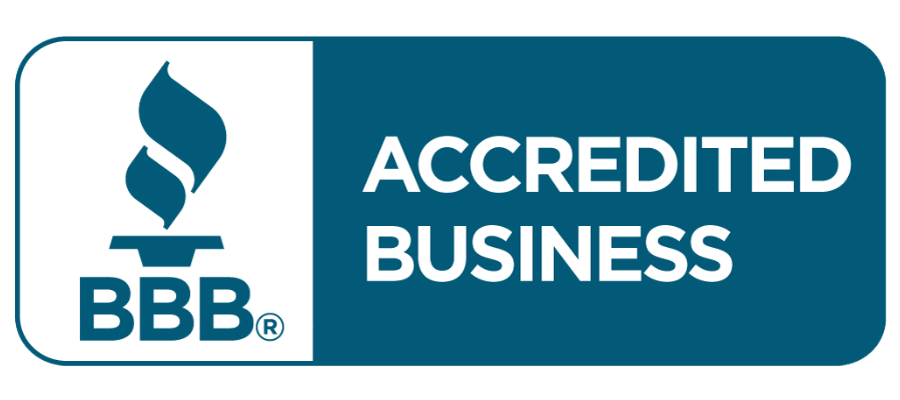Do you know the different types of owner financing agreements? If you’re thinking about buying or selling a house with owner financing, make sure you read this blog post because this information will make a huge difference in how much you pay and how long.
A Complete Guide for Buyers and Sellers
Owner financing, also known as seller financing, offers buyers a way to purchase property directly from the seller without needing traditional bank financing. This can often mean more flexible terms and easier qualifications. For sellers, it creates a steady income stream and possible tax benefits. Below, we’ll explore the primary types of owner financing arrangements, key terms to negotiate, and examples to help you find the best option for your needs.
Table of Contents

- Introduction to Owner Financing
- Benefits of Owner Financing for Buyers
- Benefits of Owner Financing for Sellers
- Types of Owner Financing Arrangements
- Key Factors in Owner Financing Agreements
- Examples of Owner Financing Scenarios
- Conclusion
- Do you have an Owner Financed Note you wish to sell?
Introduction to Owner Financing
Owner financing is a method where the property owner (seller) finances the sale rather than requiring the buyer to obtain a mortgage from a bank. This type of financing is flexible, as both the terms and structure of the agreement can be customized to suit the needs of both parties. There are several types of owner financing basically determined by who hold the deed in owner financing



About American Funding Group
I’m Kevin Clancy, Company President. I am a graduate of the US Coast Guard Academy. After years of military service and high-level corporate financial experience, I’ve dedicated myself to helping people prosper in real estate as one of America’s most trusted mortgage note buyers.
Our company’s core values are:
1) We do what we say, including overcoming obstacles other note buyers can’t overcome.
2) We communicate with you every step of the way so that we can close your sale ASAP.
3) And most importantly… “We treat You with respect because that’s the way we want to be treated.” That attitude has helped us become one of the most trusted note buying companies.
Benefits of Owner Financing for Buyers
it’s a powerful way to acquire property without having to go to a bank, and perhaps even to get more favorable terms than you’d get at a bank.
That’s because the seller is the one who finances the purchase of the house… selling the house and accepting a down payment and regular mortgage payments until the house is paid in full.

There are different types of owner financing arrangements but here’s the most important thing to know: everything is negotiable. When you find a seller who is willing to do an owner financing arrangement, it’s just a matter of bringing together the right components into the agreement to make it a win/win. Remember, everything (sales price, down payment0 and loan terms are all negotiable.
Benefits of Owner Financing for Sellers
Faster Closing: Owner financing can significantly speed up the closing process, as there’s no need to navigate the complexities of a traditional mortgage application and approval process.
Lower Closing Costs: Buyers may avoid some of the fees associated with conventional mortgages, such as appraisal and lender fees.
Flexible Down Payment: Sellers often have more flexibility in setting down payment requirements compared to traditional lenders.
Alternative for Buyers with Credit Challenges: Owner financing can be a viable option for buyers who may not qualify for traditional mortgages due to credit issues or other factors.
Types of Owner Financing Arrangements
1. Mortgage Note
A mortgage note is one of the most common types of owner financing. In this arrangement, the seller provides financing to the buyer, who makes monthly payments just like a traditional mortgage. The buyer owns the property and uses it as collateral, and the seller holds a lien on the property until the loan is repaid.
2. Trust Deed
In a trust deed arrangement, the buyer receives the property title and makes payments to the seller, who is the lender. A trustee, often a neutral third party, holds the title as collateral until the loan is repaid. Trust deeds are common in some states and are similar to mortgage notes but involve a third-party trustee.

3. Land Contract
A land contract, also known as a contract for deed, allows the buyer to occupy and pay for the property without receiving the title until the financing terms are met. Unlike a mortgage note or trust deed, the seller retains ownership during the financing period, and the buyer gets the title only after making all agreed-upon payments.
4. Agreement for Deed
An agreement for deed is similar to a land contract, where the buyer occupies the property and makes payments to the seller over time. However, the buyer does not receive the title until the full payment is made. This arrangement is beneficial for buyers who may not qualify for traditional loans and is typically shorter-term.
Key Factors in Owner Financing Agreements
Ownership Transfer
An important consideration when considering the types of owner financing arrangements is who will own the property during the owner financing period. If the title passes to the buyer at the sale, then the buyer gives the lenders a mortgage or deed of trust as collateral for the loan. If the seller keeps the title and the borrowers get title when the loan is paid off, the transaction will be either an Agreement for deed or a land contract.

Purchase Price
In owner financing deals, the purchase price is negotiable. Buyers may negotiate for a lower price if they’re paying a lot of cash up front, or sellers may increase the price to account for the extended payment period. Sometimes the seller might agree to a lower purchase price. Or if the sale is under an agreement for deed or land contract and you are the buyer, it might be in your interest to negotiate a purchase price today that is attractive when you finally own the house outright in a few years.
Down Payment
A down payment is often required, as it shows the buyer’s commitment to the sale. Sellers may ask for a larger down payment to reduce risk, while buyers may want a smaller down payment to conserve cash. The seller may want a down payment… maybe they need some money now, or they want to see that you’re serious. The buyer may want to pay a down payment to reduce the size of the overall financing agreement, or the buyer may want to minimize the size of the down payment.
Sometimes sellers will want money on the back end of the agreement, by creating a shorter repayment period with a final ballon payment.
Figure out what works for both of you and work with that.
Repayment Period and Balloon Payments
Repayment terms are also flexible. Sellers may offer longer terms with lower payments or require a shorter term with a final balloon payment to expedite full repayment. One of the biggest factors in owner financing arrangements is how long the agreement will be in force – in other words, how long will it take to pay off the financing? Higher payments usually mean paying off the financing faster, while ultimately paying less interest.
However, lower payments spread out over a longer period of time might raise the overall price of the transaction but will also be more manageable for the buyer.
Interest Rate
Interest rates in owner financing agreements vary and can be simpler to negotiate. While a fixed-rate interest structure is common, some agreements may involve compounding interest, affecting the total amount paid. A big factor in owner financing arrangements is how much interest will be paid on the loan, and how that interest is calculated. A simple interest rate of 7% added to your financing is very different than an annual compounding interest rate of 7%. Make sure you understand the interest rate terms very carefully!
Examples of Owner Financing Scenarios

- Example 1: Short-Term Owner Financing with Balloon Payment
A seller agrees to finance the property for five years, with the buyer making monthly payments and a balloon payment at the end. This structure benefits buyers who plan to refinance later. It also benefits the seller as he gets all his money in 5 years. - Example 2: Land Contract for Lower Down Payment
In some areas such as Michigan, land contracts are the normal way to transfer property. But a buyer may enter s a land contract with a 10% down payment and a 10-year repayment period, with ownership transferring once payments are completed. However, remember all terms such as down payment, interest rate and repayment period are negotiable. - Example 3. The owner of a single-family home sells it to a buyer with a typical seller financing arrangement. The price is set at fair market determined by comps or a BPO. The buyer puts 15% down and the seller finances the balance (85% of the purchase price) at 7% for 30 years.
Conclusion
Owner financing offers buyers and sellers a flexible approach to real estate transactions. By understanding the different types of owner financing, such as mortgage notes, trust deeds, land contracts, and agreements for deed, both parties can structure a deal that meets their needs and benefits both sides. Make sure to review each element of the agreement carefully and negotiate terms to create a win-win scenario. I recommend professional advice when entering into an owner financing arrangement. Use of a competent real estate attorney and/or title company is highly recommended.
Do You have an Owner Financed Note you wish to sell? Fill out the below form or call our office at (772) 232-2383.
Or if you currently own an owner financed note and you’d like t see what it is worth please fill out the form below:
